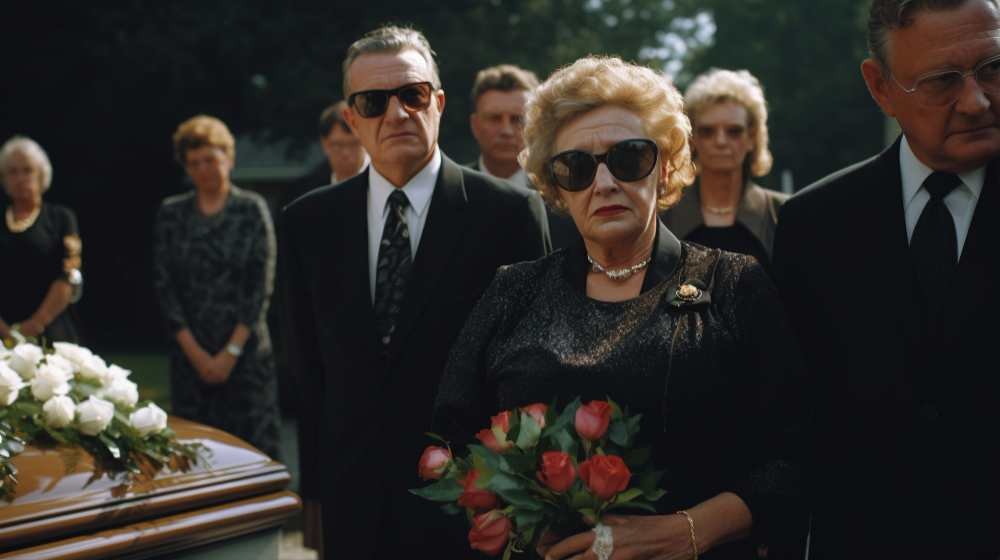Introduction: What Can “Dear America Letters Home from Vietnam” Teach Us Today?
What does it truly mean to experience war—not as a headline, but as a human being halfway across the world, clutching a pen and longing for home? For many Americans, the Vietnam War is a chapter in textbooks or a story told in documentaries, but for those who lived through it, the war was a daily reality, punctuated by letters sent and received. The simple act of writing home became an anchor for soldiers and their families, a lifeline connecting two worlds divided by conflict and uncertainty.
The Vietnam War, which raged from the late 1950s through 1975, left an indelible mark on the United States. It was a war that divided public opinion, challenged national ideals, and forever altered the lives of those who served. Amidst the chaos, thousands of young men and women reached for paper and ink, pouring their hopes, fears, and daily experiences into heartfelt letters. These missives, often beginning with the words “Dear America” or “Dear Mom and Dad,” have become more than just personal correspondence—they are windows into the soul of a generation at war.
“Dear America Letters Home from Vietnam” is more than a phrase; it is a testament to the emotional and historical weight these letters carry. They are not just records of military movements or battlefield reports. Instead, they are vivid, raw, and deeply personal accounts of what it meant to be far from home, wrestling with the realities of war and the longing for peace. The emotional resonance of these letters continues to echo, reminding us that behind every statistic or strategy, there are real people with stories worth hearing.
In this blog post, the goal is to delve into the significance of “Dear America Letters Home from Vietnam,” exploring their content, themes, and enduring legacy. These wartime letters offer a perspective on the Vietnam conflict that is as heartfelt as it is enlightening. By examining the words soldiers sent home, readers can gain a deeper appreciation for the courage, vulnerability, and humanity woven through America’s most challenging moments.
What Are “Dear America Letters Home from Vietnam”?
“Dear America Letters Home from Vietnam” refers to the personal correspondence sent by American soldiers, nurses, and support staff during the Vietnam War. These letters stand as powerful reminders of the emotional and social connections maintained between those on the front lines and loved ones back home.
The Meaning Behind “Dear America”
The phrase “Dear America” goes beyond a simple salutation. It encapsulates the idea of reaching out to a nation, a family, or a community, sharing the realities of war from the perspective of those who lived it. For many, their letters opened with “Dear Mom,” “Dear Dad,” or “Dear America,” reflecting both a personal and collective address—an appeal to understanding, unity, and remembrance.
The Role of Letters in Wartime
In the age before instant messaging and email, letters were the primary means for soldiers to stay connected with their families and friends. Each envelope carried with it the weight of longing, reassurance, and, often, unspoken fears. For many, these letters were a source of comfort, allowing them to maintain a sense of normalcy amidst the unpredictability of war.
Types of Letters Sent from Vietnam
- Official Letters: These included notifications about promotions, commendations, or official reports to families regarding the well-being of their loved ones.
- Personal Letters: Far more common, these were filled with daily observations, jokes, confessions, and heartfelt descriptions of life in Vietnam.
- Emotional Letters: Many letters contained expressions of love, hope, fear, and sometimes final goodbyes.
- Censored Letters: Some correspondence was subject to military censorship, with sensitive information blacked out to protect operations and morale.
Common Themes and Motifs
Themes found in these letters often revolved around the longing for home, reflections on the purpose of war, camaraderie among soldiers, descriptions of Vietnam’s landscape, and honest admissions of fear and uncertainty. The letters could be optimistic, humorous, or haunting—sometimes all at once.
Historical Context of the Vietnam War and Letter-Writing
Understanding “Dear America Letters Home from Vietnam” requires a look at the broader backdrop of the conflict and the unique circumstances of letter-writing during this era.
Brief History of the Vietnam War
The Vietnam War began in the late 1950s as a struggle between communist North Vietnam and the government of South Vietnam, supported by the United States. By 1965, American combat troops were on the ground, with peak involvement in the late 1960s. The conflict ended in 1975 with the fall of Saigon, leaving deep scars on both nations.
Life for Soldiers in Vietnam
Soldiers endured intense heat, monsoon rains, dense jungles, and the constant threat of enemy attack. Far from home, they faced not only physical challenges but also emotional and psychological strains. The letters they wrote often reflected these hardships, providing readers with vivid snapshots of daily life—sometimes mundane, sometimes terrifying.
The Importance of Mail for Morale
Mail was a lifeline. The arrival of letters was an event eagerly awaited in every camp. Soldiers would sometimes line up for hours, hoping for a word from home. These letters carried news, love, and encouragement, helping to sustain morale in the face of adversity.
Military Censorship
To control sensitive information, military authorities censored outgoing and incoming mail. Details about locations, missions, or casualties were often blacked out or omitted. Despite this, soldiers found ways to communicate their feelings and reassure their families.
Letter-Writing in Other Wars: A Comparison
While letter-writing has been part of every American conflict, Vietnam’s letters were unique in their candor and immediacy. Unlike the patriotic optimism of World War II correspondence, Vietnam letters often revealed doubts, disillusionment, and the complexity of fighting in a controversial war.
The Emotional Impact and Themes in “Dear America” Letters
The true power of “Dear America Letters Home from Vietnam” lies in their emotional depth. Unlike official military documents, these letters reveal the inner lives of those who served, offering an unfiltered look at their thoughts and feelings.
Hope and Longing for Home
Many letters pulsated with hope—a belief that the war would end soon, and that reunion with loved ones was just around the corner. Soldiers wrote of the things they missed most: family dinners, baseball games, or simply the comfort of a familiar bed.
Example Excerpt:
“Mom, I think about your apple pie every night. If I close my eyes, I can almost taste it. Tell Dad I’ll be home soon. I hope.”
Fear and Vulnerability
Despite efforts to reassure their families, soldiers often confided their fears to the page. The threat of ambush, disease, and constant uncertainty weighed heavily.
Example Excerpt:
“Last night was rough. We lost two guys. I’m scared, but I try to stay strong for the younger ones.”
Camaraderie and Friendship
War forges powerful bonds. Letters often detailed friendships formed under fire, moments of laughter in the midst of chaos, and the deep sense of brotherhood among soldiers.
Example Excerpt:
“Me and Tony look out for each other. He reminds me of Uncle Joe—always cracking jokes, even when the rain won’t stop.”
Disillusionment and Questioning
As the war dragged on, a sense of disillusionment crept into many letters. Soldiers questioned the purpose of the conflict and the lack of clear progress.
Example Excerpt:
“Sometimes I wonder why we’re here. It doesn’t seem like we’re making a difference. But I keep going, hoping for some good to come out of this.”
Patriotism and Duty
Despite doubts, many soldiers expressed pride in serving their country. The sense of duty to America, to their comrades, and to their own ideals remained a recurring theme.
Example Excerpt:
“Tell the kids I’m doing my job, and I’m proud to wear this uniform. I miss you all every day, but I know I’m doing what’s right.”
Impact on Families
For families, receiving a letter was a double-edged sword—both a relief and a reminder of the dangers their loved ones faced. The arrival of a letter could bring joy, comfort, anxiety, or even heartbreak.
Example Excerpt from a Family Letter:
“Your last letter made us so happy. We read it out loud at dinner. Stay safe, and come home soon.”
Humanizing the War
These letters give a face to the Vietnam War that statistics and headlines cannot. Through them, we see the laughter, the tears, the courage, and the doubts. They remind us that every soldier was someone’s child, friend, or sibling, carrying personal dreams and fears into the unknown.
The Legacy and Cultural Impact of “Dear America Letters Home from Vietnam”
The influence of “Dear America Letters Home from Vietnam” extends far beyond the battlefield. These letters have shaped how the Vietnam War is remembered, studied, and understood in American culture.
A Personal Perspective on History
Through these letters, historians and the public gain access to the authentic voices of those who lived the war. Their firsthand accounts offer insights that official records cannot, revealing the true costs and consequences of conflict.
Influence on Literature, Film, and Media
Numerous books, documentaries, and films have drawn on Vietnam War letters to tell more nuanced stories. Works such as the documentary “Dear America: Letters Home from Vietnam” bring these voices to life, using the actual words of soldiers to create powerful narratives.
Preservation in Museums and Archives
Institutions like the Vietnam Veterans Memorial Fund, the National Archives, and the Library of Congress maintain extensive collections of wartime letters. These archives ensure that the stories and sacrifices of Vietnam veterans are preserved for future generations.
Educational Value
Educators use these letters in classrooms to teach about the Vietnam War, the effects of conflict, and the power of personal testimony. Students engage with the human dimension of history, fostering empathy and understanding.
Ongoing Resonance for Veterans and Families
For veterans, these preserved letters are a source of reflection, healing, and sometimes reconciliation. Families cherish them as legacies, tangible links to those who served and, in some cases, never returned. The emotional resonance of these letters continues to shape the lives of those connected to the Vietnam War.
How to Access and Explore “Dear America Letters Home from Vietnam”
For those interested in reading or researching “Dear America Letters Home from Vietnam,” a wealth of resources is available, both in print and online.
Libraries and Archives
- Library of Congress: Houses a vast collection of Vietnam War correspondence, accessible to researchers and the public.
- National Archives: Holds official and personal wartime letters, many of which have been digitized.
- Vietnam Veterans Memorial Fund: Offers an online archive of letters and personal stories.
Notable Collections and Anthologies
- “Dear America: Letters Home from Vietnam” (Book): A curated collection of real letters, representing a diverse array of experiences.
- “Vietnam Mailbag: Voices from the War, 1968-1972”: A compilation of letters published in the Wilmington Morning News, offering a unique local perspective.
Tips for Finding Authentic Letters
- Look for published anthologies with reputable editors or organizations.
- Visit university or public library archives, which often feature special collections on the Vietnam War.
- Explore online databases, such as the Veterans History Project (Library of Congress).
Connecting with Veterans and Families
- Attend local veterans’ events or memorials, where personal stories and letters are often shared.
- Reach out to veteran organizations, many of which welcome inquiries and offer opportunities to learn more.
Recommended Documentaries, Books, and Websites
- “Dear America: Letters Home from Vietnam” (HBO Documentary): Features actors reading actual letters, accompanied by archival footage.
- “The Things They Carried” by Tim O’Brien: While a fictional work, it draws deeply from the experiences and themes found in real letters.
- Vietnam Veterans Memorial Fund Website: Features stories and letters from those who served.
By exploring these resources, readers can engage directly with the voices of the Vietnam War, gaining a richer understanding of its history and legacy.
Key Takeaways
- “Dear America Letters Home from Vietnam” are firsthand accounts that humanize the Vietnam War, offering emotional and historical insights unattainable from official records alone.
- These letters reveal the hopes, fears, and everyday experiences of American soldiers, nurses, and support staff serving in Vietnam.
- The legacy of these letters endures in literature, film, education, and the lives of veterans and their families.
- Numerous archives, books, and documentaries make these powerful documents accessible to the public.
- Engaging with these letters helps foster empathy, understanding, and appreciation for the sacrifices made during the Vietnam War.
Conclusion: Why “Dear America Letters Home from Vietnam” Still Matter
The Vietnam War may be decades in the past, but the words penned by those who served continue to resonate. “Dear America Letters Home from Vietnam” invite readers to step beyond the headlines and statistics, offering a glimpse into the hearts and minds of those who lived through one of America’s most turbulent eras. Through their letters, soldiers brought the reality of war home—not just to their families, but to the nation as a whole.
Personal narratives like these are more than historical artifacts. They are reminders of our shared humanity, of the ties that bind people across distance and time. By reading and reflecting on these letters, new generations can better understand the costs of war, the value of peace, and the enduring power of hope.
For anyone seeking to connect with the past, honor veterans, or simply understand the complexities of the Vietnam War, exploring these letters is an essential step. Their voices are waiting—honest, courageous, and deeply human. Readers are encouraged to delve into these stories, share their own experiences, and keep the memory of those who served alive.
Have you or your family encountered Vietnam War letters? Are there stories or resources you’d like to share? Join the conversation and help preserve this important piece of American history.







